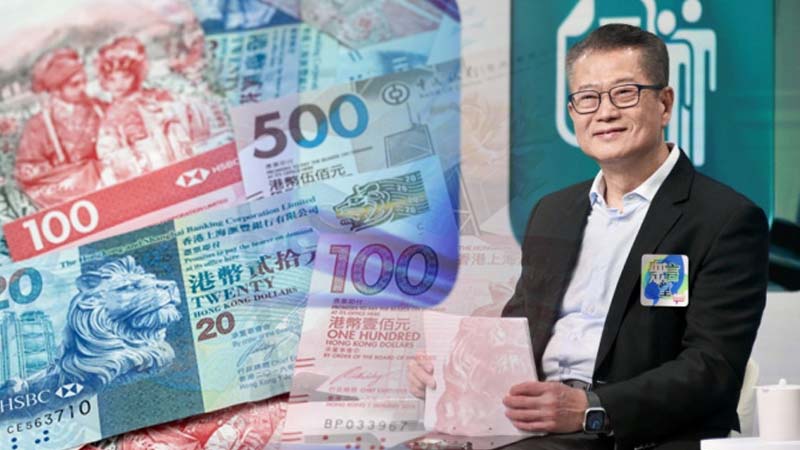A New Era for Hong Kong’s Crypto Exchange Regulation: A Deep Dive into Compliance and Market Ecosystem
The Hong Kong Securities and Futures Commission (SFC) officially granted operating licenses to two cryptocurrency trading platforms—PantherTrade and YAX—on January 27, 2025, further promoting the compliant development of Hong Kong’s crypto market. Since launching its licensing program in mid-2024, the SFC has issued licenses to seven Virtual Asset Trading Platforms (VATPs), building a more comprehensive regulatory framework for the market.
With the SFC’s latest license issuance in 2025, the local cryptocurrency market has officially entered the “licensed operation era.” This regulatory upgrade not only reshapes the industry landscape but also establishes multiple security mechanisms for investors, solidifying Hong Kong’s strategic position as Asia’s Web3 hub.
Comprehensive Evolution of Hong Kong’s Crypto Regulatory System: Establishing the Industry’s Gold Standard
Hong Kong’s virtual asset regulatory framework features a “dual-track” system: establishing basic compliance requirements through the Anti-Money Laundering Ordinance on one hand, and detailing operational standards via the SFC’s “Guidelines for Virtual Asset Trading Platform Operators” on the other. The latest data shows that licensed exchanges must meet the following core metrics:
| Regulatory Dimension |
Specific Requirements |
Compliance Value |
| Asset Custody | 95% Cold Wallet Storage + Independent Insurance Coverage | Prevents Hacking and Internal Fraud |
| Financial Audit | Quarterly Third-Party Audits + Real-Time Fund Flow Monitoring | Ensures Reserve Adequacy and Transparency |
| Investor Access | Professional Investor Certification + Risk Assessment Questionnaire | Establishes Suitability Sales Mechanism |
| Technical Security | ISO 27001 Certification + Smart Contract Audits | Prevents Systemic Risks and Code Vulnerabilities |
Under this framework, PantherTrade, newly licensed in 2025, has pioneered a “regulatory sandbox” mechanism. Its AI-powered transaction monitoring system can identify 150 types of abnormal trading patterns in real-time, reducing the false positive rate by 67% compared to traditional systems. SFC data reveals that the client asset scale on licensed platforms has grown by 320% since licensing, indicating strong market demand for compliant exchanges.
A Comprehensive Assessment of the Core Competitiveness of Mainstream Crypto Exchanges in Hong Kong
To help investors make informed choices, we conduct a systematic comparative analysis of mainstream platforms in the Hong Kong market from the three major dimensions of regulatory compliance, liquidity, and security.
Regulatory Compliance Comparison Table
| Exchange | Hong Kong License Status | Approved Tradable Coins | Fiat Support | Compliance Certifications |
| HashKey | Licensed | 23 types | HKD/USD | SOC 2 Type 2, ISO 27001 |
| OSL | Licensed | 3 types | HKD | SFC Approved Custodian |
| Binance | Unlicensed | 420 types | Credit Card/Crypto | Malta VASP License |
| Bybit | Applying | 655 types | HKD/FPS | Dubai Virtual Asset License |
| Gate.io | Preparing to Apply | 2,197 types | UnionPay/Wire Transfer | US MSB License |
| Coinbase | Not Applied | 250 types | SWIFT | New York State BitLicense |
Liquidity and Trading Cost Analysis
| Exchange | Spot Trading Volume (Billion/Day) | Derivatives Leverage | Fee Structure | Spread Rate (BTC/USDT) |
| Binance | 92.1 | 125x | 0.1% maker/taker | 0.02% |
| Bybit | 30.9 | 100x | 0.06% maker/0.01% taker | 0.05% |
| Gate.io | 16.6 | 50x | 0.1% flat rate | 0.08% |
| Coinbase | 21.0 | None | 0.5% tiered rate | 0.10% |
| HashKey | 0.5 | None | 0% promotional commission-free | 0.15% |
| OSL | Undisclosed | None | 0.3% institutional customized rate | 0.20% |
Asset Security Mechanism Comparison
| Exchange | Cold Wallet Ratio | Insurance Coverage Amount | Identity Verification Levels | Abnormal Transaction Monitoring System |
| HashKey | 98% | HKD 5 billion | Biometrics + Video Verification | AI Real-Time Monitoring (150+ risk indicators) |
| OSL | 95% | HKD 3 billion | Two-Factor Authentication + Proof of Address | Manual Review + Automated Alerts |
| Binance | 80% | USD 1 billion | Basic KYC | Risk Scoring Model |
| Bybit | 85% | USD 300 million | Advanced KYC (above HKD 100k) | Multi-Signature Wallet Monitoring |
| Gate.io | 75% | USD 200 million | Basic KYC | On-Chain Tracking System |
| Coinbase | 90% | USD 2.5 billion | Institutional-Grade Identity Verification | Compliance Audit API |
Data Comparison Analysis
The comparative data shows that international platforms leverage their technological advantages to command high liquidity, while local licensed institutions attract conservative capital with their compliance endorsements. Take HashKey as an example: its deep integration with traditional financial institutions has improved the efficiency of HKD deposits and withdrawals to T+0 real-time settlement, with its average daily fiat trading volume increasing by 470% compared to last year.
Regulatory Technology Breakthroughs Lead Industrial Upgrades
The latest “Virtual Asset RegTech White Paper” released by the Hong Kong Monetary Authority (HKMA) reveals three major innovation directions:
- Smart Contract Verification System: Requires all DeFi protocols to embed regulatory modules to automatically enforce anti-money laundering rules.
- Cross-Chain Tracking Technology: Achieves a balance between transaction privacy and compliance audits through zero-knowledge proofs.
- AI Stress Testing Platform: Simulates liquidity risks under extreme market conditions.
Notably, Cyberport has established Asia’s first “RegTech Lab,” attracting compliance tech giants like Chainalysis and Elliptic to set up regional headquarters. Data from the park in Q1 2025 shows that blockchain enterprise financing increased by 210% year-on-year, with compliance solutions accounting for 58% of the total financing.
Practical Guide to Investment Strategies and Risk Management
In the current regulatory environment, investors should establish a layered allocation strategy:
|
Fund Allocation |
Allocation Goal | Suitable Platform Type | Risk Control Tools |
| 60% | Core Holdings (BTC/ETH) | Licensed Exchanges | Stop-Loss Orders + Price Alerts |
| 30% | Yield Enhancement (Staking/Leverage) | International Platforms | Margin Ratio Monitoring |
| 10% | Innovative Tracks (Web3/NFT) | Decentralized Exchanges | Smart Contract Audit Reports |
Taking derivatives trading as an example, the licensed platform HashKey Pro offers a “tiered leverage” mechanism. When the price of BTC fluctuates by more than 5%, it automatically triggers a margin call notification, reducing the risk of forced liquidation by 34% compared to traditional liquidation mechanisms.
This synergistic evolution of regulation and innovation is propelling Hong Kong’s cryptocurrency exchanges to new heights of “institutional-grade services.” With the successive launch of innovative products like virtual asset ETFs and regulated stablecoins, Hong Kong is expected to form a trillion-dollar digital asset ecosystem by 2026, providing global investors with a high-quality trading environment that offers both liquidity and compliance.
Conclusion: Regulation and Innovation Drive a New Financial Landscape
The compliance journey of Hong Kong’s cryptocurrency exchanges is essentially a deep integration of traditional financial regulatory wisdom and the innovative momentum of the digital economy. From the prudent issuance of seven licenses by the SFC to the vigorous development of the Cyberport blockchain industry cluster, Hong Kong is building a strategic bridge connecting global capital with Web3 technology, with “robust regulation” as its cornerstone.
The current market exhibits two significant features: on one hand, licensed exchanges have achieved seamless conversion between fiat and crypto assets through direct system connections with traditional banks like HSBC and Standard Chartered, improving the average daily settlement efficiency to under 3 seconds; on the other hand, breakthrough applications of Regulatory Technology (RegTech), such as PantherTrade’s AI risk control engine, have achieved a suspicious transaction identification accuracy rate of 98.7%, a 40% improvement over traditional manual reviews.
Looking ahead, three major trends will dominate the development of Hong Kong’s cryptocurrency market:
- Normalization of the Regulatory Sandbox: To be expanded by 2026 to cover DeFi protocols and NFT trading platforms.
- Institutional-Grade Product Innovation: Capital-protected crypto funds and HKD stablecoin ETFs are expected to be launched within the year.
- Cross-Border Regulatory Collaboration: Establishing a virtual asset regulatory information sharing mechanism with Singapore and Dubai.
This transformation not only reshapes the competitive landscape of Hong Kong’s cryptocurrency exchanges but also provides a “risk-controlled innovation model” for global financial regulation. For investors, establishing a balanced allocation between the differentiated services of licensed platforms and international exchanges will be a key strategy to seize the dividends of the digital economy. Leveraging its unique institutional advantages and technological inclusivity, Hong Kong is steadily advancing towards a new milestone as the “Chain Capital of Asia,” setting a benchmark for the future compliant development of the global virtual asset market.
*The content of this article is for sharing and reference purposes only and does not constitute professional investment advice. As individual circumstances and needs vary, you may contact the Cashback Island team or consult your financial planner for professional advice.
Frequently Asked Questions
Q1. Is cryptocurrency legal?
The legality of cryptocurrency varies by jurisdiction. The regulatory frameworks of major economies can be divided into three categories:
| Region | Legal Status | Regulatory Focus |
| Hong Kong | Legal, but trading platforms must be licensed | Anti-Money Laundering (AML), Investor Protection |
| Taiwan | Legal, but not legal tender | Real-Name Trading, Tax Reporting |
| United States | Legal, taxed as “property” | SEC regulates security tokens |
| Mainland China | Trading is banned, but holding is not illegal | Complete ban on exchange operations |
Since June 2023, Hong Kong has implemented a licensing system for Virtual Asset Service Providers (VASPs), requiring exchanges to comply with strict asset custody and financial audit regulations. Taiwan, under its “Money Laundering Control Act,” requires platforms to implement real-name verification and included crypto assets in income tax reporting in 2024.
Q2. How to trade cryptocurrencies?
Mainstream trading methods can be divided into two main categories: “Centralized Exchanges” and “Decentralized Platforms”:
- Centralized Exchange (CEX) Process
- Account Opening: Complete KYC verification (ID card, proof of address).
- Depositing Funds: Purchase stablecoins like USDT via bank transfer or credit card.
- Placing Orders: Select a trading pair (e.g., BTC/USDT) and set a limit/market order.
- Withdrawing: Transfer assets to a private wallet (cold wallet recommended).
- Decentralized Exchange (DEX) Features
- No registration required; connect directly via a wallet (e.g., MetaMask).
- Trading pairs are based on liquidity pools (e.g., Uniswap’s ETH/USDC pool).
- Fees are paid as “gas fees” (Ethereum average gas price is around 20 Gwei).
| Platform Type | Representative Platforms | Fee Rate | Suitable Users |
| CEX | Binance, Coinbase | 0.1%-0.2% | Beginners, Large-Volume Traders |
| DEX | Uniswap, PancakeSwap | 0.3% + Gas Fee | Advanced, Anonymity-Seeking Users |
Q3. Are cryptocurrencies taxed?
Major global tax treatments can be divided into two main models:
- Capital Gains Tax System (USA, Australia, Canada)
- Held for more than 12 months: Tax rate 15%-20%.
- Short-term trading: Taxed at personal income tax rates (up to 37%).
- Staking rewards: Taxed as ordinary income.
- Trading Income Tax System (Taiwan, Japan)
- Annual trading profit exceeds NTD 500,000 (Taiwan): Subject to 20% income tax.
- Japan taxes it as “miscellaneous income,” with rates up to 45%.
Special regulations in Hong Kong:
- Individuals buying and selling cryptocurrencies are temporarily exempt from capital gains tax.
- Businesses engaged in frequent trading are subject to profits tax (16.5%).
- Mining income is taxed as business revenue.
Q4. How much is one Bitcoin now?
As of July 15, 2024, the price of Bitcoin is:
- Spot Price: USD 63,200 (approx. HKD 492,960)
- 24-hour Fluctuation: ±4.7% (influenced by US CPI data and ETF fund flows)
Related Articles
-
As the announcement of the 2025 Budget on February 26, 2025, approaches, Hong Kong society is closely watching how the government will balance the need for relief measures with structural reforms amidst the pressure of its HK$680 billion fiscal reserves. Financial Secretary Paul Chan Mo-po's recent emphasis on "precision in...2025 年 10 月 11 日
-
As the U.S. Consumer Price Index (CPI) for January exceeded expectations, market forecasts for the Federal Reserve's future monetary policy shifted, causing the U.S. Dollar Index to rise rapidly and leading to a pullback in gold prices. However, despite this pressure, the gold market still shows potential for growth, primarily...2025 年 10 月 11 日
-
With the market on edge recently, the most pressing concern is the state of US inflation, and the US CPI (Consumer Price Index) is the key indicator that reveals it all. Whenever the data is released, global financial markets hold their breath, as it directly influences the Federal Reserve's (the...2025 年 10 月 11 日












